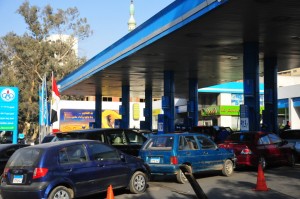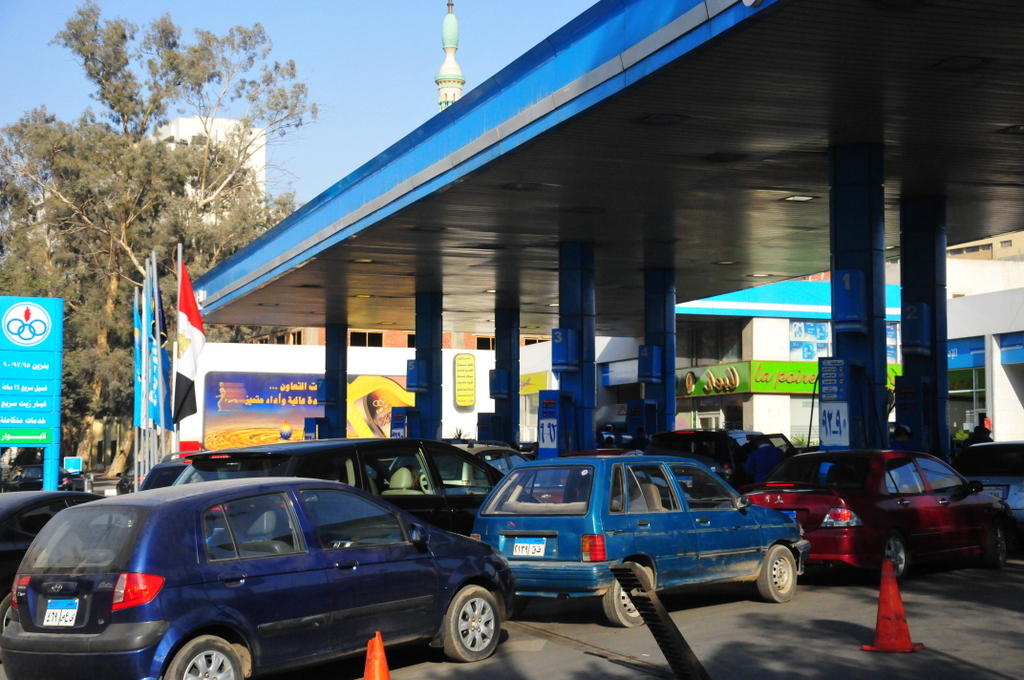
(File photo)
Hassan Ibrahim
Representatives working in petrol and diesel stations throughout Egypt have said they will begin to implement the second stage of the smartcard program in all Wataniya stations which owned by the armed forces beginning 1 August.
Hussein Abed Al-Hamid, an official working with Misr Petroleum, said the second stage of the smartcard programme will first be implemented within the country’s Wataniya stations, before being applied to those owned by the country’s Special Forces. Implementing the second stage in such a way, he said, would be beneficial in that it would allow all other, non-state-owned stations located throughout the country to observe the pros and cons of the program before adopting it themselves.
Hamid said the city of Mansoura possessed only one Wataniya station, in addition to two other non-state owned stations located along the road leading into the city. He added that gasoline stations had already begun training workers on the use of smartcards before Ramadan, adding that the company E-Finance had already begun supplying such stations with machinery, in addition to working to help repair faulty, nonfunctioning machines.
Nasser Muharam, a representative working with Exxon Mobile in the Beheira Governorate, said the implementation of the second stage of the smart card programme at Wataniya stations presented a challenge to the armed forces due to the current political turmoil.
Muharram said station owners themselves were not against the implementation of the card’s second stage, as they say it would help put an end to and mitigate the current petroleum crisis. He said the Ministry of Petroleum was still in the process of implementing the first stage of the smartcard project, which requires that stations obtain their fuel quotas from supplies stored within warehouses.
Khalid Azat, owner of a petrol station in Cairo, said he expected the second stage of the programme to succeed, particularly with non-stat-owned stations, which total 2,860 throughout the country. Meanwhile, the number of state-owned fuel stations is 70
Azat said at the moment, the government has been unable to overcome the country’s inventory station crisis. Such stations are usually small and located in remote areas near villages. Many of these stations, he said, had not been registered with the state, a fact which would make it difficult to employ the second stage of the smartcard program, due to the potential for unregistered petroleum products to be smuggled to such stations.
The most recent statistics coming from the Egyptian General Petroleum Company show that the number of private and public registered fuel stations throughout the country totaled 2,700 by the end of 2011.
Translated from Al-Borsa




